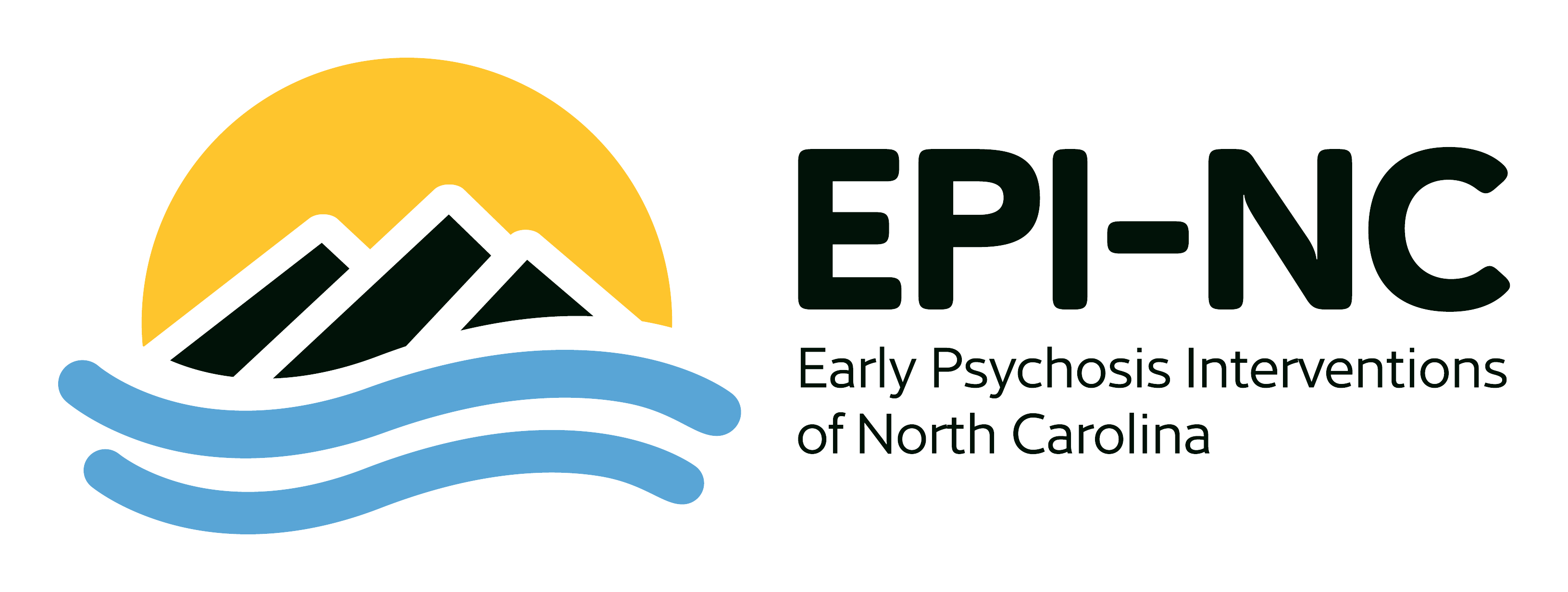About Coordinated Speciality Care
Key Benefits

- Recovery-oriented care promotes the individual to engage in day-to-day activities as soon as possible
- Demonstrated increases in employment, school participation, and volunteering
- Greater improvement of symptoms and quality of life
- Active involvement of family/significant others leading to better understanding and less stress for all involved
- Possibility of delaying or preventing the onset of chronic and disabling psychosis with early intervention
- Reduced hospitalization and increased engagement with community services (Dodgson et al, 2008)
Sources: SAMSHA, PREP, EASA, NAVIGATE
Key Services
Borrowed from Europe’s OPUS and Australia’s EPPIC programs, and then innovated upon, North Carolina’s CSC model has been in operation since 2005. As with other models of CSC, NC’s CSC programs are “One-Stop Shops,” where all care is provided under the same roof, eliminating confusion and coordination problems more often found when seeing multiple providers in the community. Core components of the NC model of CSC include:
Families and other concerned significant others of individuals with early psychosis are often times as troubled by the symptoms of psychosis as are the individuals at the center of services. Traditional treatment for psychosis rarely involves family and friends, often times reserving for discharge planning from hospitalizations. With licensed family therapists, NC’s model integrates support and education for family and friends and proven therapies to help resolve relationship distress. We know that everyone lives in the context of those most important to them, and recovery works better with secure family bonds.
We know that medical care is an essential part of treating early psychosis, which includes integrative health care. NC’s model for CSC includes licensed psychiatric medical providers who deliver evidence-based medication management, lifestyles and health counseling, and medical management of co-occurring issues such as anxiety and depression, tobacco use, substance and alcohol dependency, nutritional deficits, fatigue, and sleep problems. We know that for a healthy mind, we must have a healthy body, and medical care that attends to the needs of the body.
For the individuals at the center of care, early psychosis recovery is a process requiring the option for private support to help make sense of what has happened, order their experience, and rebuild a narrative that includes a sense of autonomy, competency, and belonging. NC’s CSC model includes licensed psychotherapists who are trained to deliver evidence-based approaches to psychotherapy including Client-Centered Therapies, Solution-Focused Therapies, Cognitive Behavioral Therapies, Motivational Interviewing, Individual Resiliency Training, Social Skills Training, and Relapse Prevention Therapies.
Returning to school and/or developing meaningful work is part of becoming an adult and recovering from any condition. NC CSC programs have specialists dedicated to assisting individuals with school or work at the beginning of treatment.
Developing an identity outside of the family of origin through peer interaction and peer learning is an important part of adolescence and young adulthood. Early psychosis can interrupt this. The NC CSC programs have Peer Support Specialists (individuals who are in recovery from psychosis themselves) dedicated to assisting individuals recover their social lives.
For services beyond the scope of CSC programs, sometimes additional referrals have to be made elsewhere, and this can be challenging for individuals and their families to manage. All NC CSC programs integrate case management into the individual therapy .
